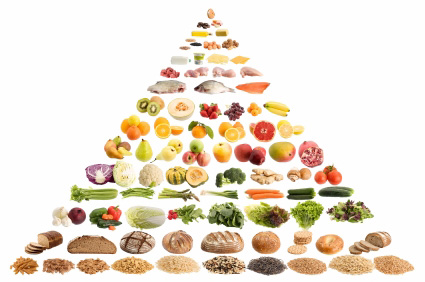
Here's a simple rule to remember: If it can sit on a shelf for a long time, it can probably sit on your body for a long time, too.
Let’s face it: Carbs get a bad rap.
Contrary to what some diets might have you believe, your body needs carbohydrates for proper function and improved results. For one, carbohydrates give you the energy to power through your workout and, as a result, make strength and muscle gains. Moreover, low-carb diets deplete glycogen stores. Once glycogen stores are emptied, your body will burn protein - including protein from muscle tissue - to meet its energy needs. That means you’ll actually lose muscle mass!
Because low-carb diets are so widespread, most athletes don’t get their required carbohydrate intake. For active individuals, experts recommend 6 to 7 grams of carbohydrates per kilogram of bodyweight per day. At 71 kilos or 158 pounds, my daily carbohydrate intake should be upwards of 450 grams.
Does this mean I can eat as much white bread and pasta as I want? No.
The real story on carbohydrates is that you should select natural, unrefined, complex carbohydrates. These are the so-called “good carbs” and can be found in such foods as brown rice, oats, barley, buckwheat, apricots, oranges, prunes, plums, broccoli, spinach, turnip greens, lettuce, lentils, kidney beans, black beans, soy beans, soy milk, any many others. In other words, good carbs can be found in whole grain foods, fruits, vegetables and legumes - many of which are high in fiber.
Refined carbohydrates, like those found in pastries, sugary drinks and other highly processed foods, are not a friend of smaller waistlines. With the exception of your post-workout recovery drink (when your body needs a quick shot of carbohydrates), these are to be avoided.
The bottom line: The war against carbs has no winners; carbohydrates are your friend. Just be smart about the type of carbohydrates that you consume.









Being smart about carbohydrate intake means no grains, period. They may be a great boost for your energy output but that doesn’t justify the havok they wreak on your body. It’s like eating a bicycle because you need more iron in your diet—just because it helps a given goal doesn’t mean it’s the best solution for it.
If you’re telling people they can never eat a slice of bread, pizza or pasta again, that’s not realistic for most people. I don’t like absolutes. Everything in moderation.
I’m not telling anyone they can or can’t do anything, just stating facts based on evolutionary biology. If you’re going to eat grains in moderation you should at least know what it’s doing to your body. Pick up a copy of “The Paleo Diet” by Dr. Loren Cordain or “The Paleo Solution” by Robb Wolf. Even the current #1 book on Amazon right now in the Nutrition category is “Wheat Belly,” about nothing but how terrible grains are for humanity. This is serious stuff. I think Davey shares a lot of fantastic information and does a lot to help people; I simply think recommending grains to people as part of a healthy diet does anything but that.
What I was saying, as someone who has counseled professionally on weight loss and healthy diet, is that I’ve learned it is counter-productive to try and take away staples of folk’s diet. They won’t stay with it for long. Need to control portion, not eliminate unless there is a food allergy.
What about Splenda/Sucralose? I read that it passes through the body unchanged but some fitness sites insist it’s the same as sugar.
Artificial sweeteners have been shown to increase the desire for sweets.
instead of bread-try rykrisp or Wasa Bread.pass on pizza-pasta-and beer.when maintaining weight-then have the occasional carb type food.
Hey Davey, You shouldn’t consider flour a complex carb, even if it comes from whole grains; you are doing yourself a disservice. Keep up all the good work though, you are a BEAUTIFUL inspiration! xoxo
Thanks , I have recently been looking for info about this subject for ages aand yourts is the
best I’ve found out till now. But, what in regards
to the bottom line? Are you certain concerning the source?